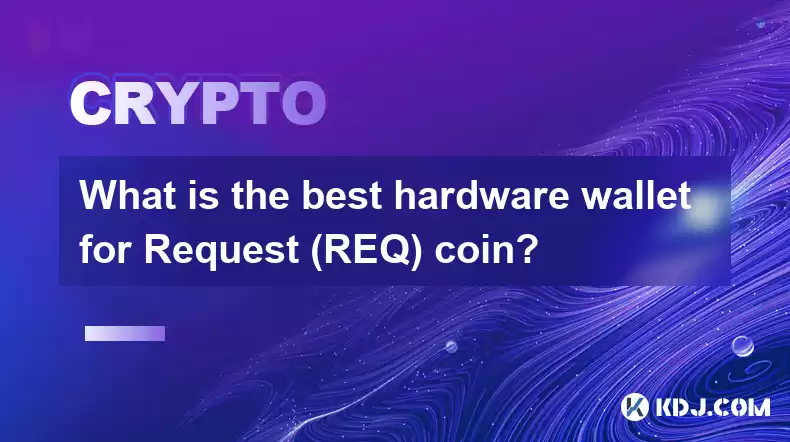-
 Bitcoin
Bitcoin $118300
-3.52% -
 Ethereum
Ethereum $4554
-3.81% -
 XRP
XRP $3.090
-5.78% -
 Tether USDt
Tether USDt $1.000
0.04% -
 BNB
BNB $842.0
-0.27% -
 Solana
Solana $194.6
-3.24% -
 USDC
USDC $0.9998
0.00% -
 TRON
TRON $0.3600
-0.20% -
 Dogecoin
Dogecoin $0.2243
-7.95% -
 Cardano
Cardano $0.9066
2.57% -
 Hyperliquid
Hyperliquid $45.89
-4.06% -
 Chainlink
Chainlink $22.49
-5.34% -
 Stellar
Stellar $0.4261
-6.01% -
 Sui
Sui $3.753
-5.87% -
 Bitcoin Cash
Bitcoin Cash $592.1
-3.33% -
 Ethena USDe
Ethena USDe $1.001
-0.01% -
 Hedera
Hedera $0.2502
-5.51% -
 Avalanche
Avalanche $23.71
-6.22% -
 Litecoin
Litecoin $121.8
-6.36% -
 Toncoin
Toncoin $3.416
-2.58% -
 UNUS SED LEO
UNUS SED LEO $9.323
0.85% -
 Shiba Inu
Shiba Inu $0.00001291
-6.93% -
 Uniswap
Uniswap $10.91
-9.13% -
 Polkadot
Polkadot $4.010
-5.38% -
 OKB
OKB $93.46
-9.08% -
 Dai
Dai $0.9999
0.00% -
 Bitget Token
Bitget Token $4.559
-4.99% -
 Cronos
Cronos $0.1545
-6.93% -
 Ethena
Ethena $0.7362
-5.51% -
 Aave
Aave $311.6
-4.32%
What is the best hardware wallet for Request (REQ) coin?
When selecting a hardware wallet for Request (REQ), compatibility with ERC-20 tokens, ease of use, affordability, and additional features should be carefully considered to ensure optimal security and functionality.
Dec 26, 2024 at 02:04 am

Key Points:
- Hardware wallets provide enhanced security for cryptocurrency storage.
- Compatibility of the wallet with Request coin is crucial.
- Consider factors like user interface, affordability, and additional features when choosing a hardware wallet.
What is a Hardware Wallet?
Hardware wallets are physical devices designed to store your private keys offline, providing enhanced security for your crypto assets. Unlike software wallets, which store private keys on your computer or mobile device, hardware wallets keep them isolated from the internet, reducing the risk of hacking and theft.
Why Use a Hardware Wallet for Request (REQ)?
Request is an ERC-20 token that enables the creation of decentralized payment requests on the blockchain. Holding a significant amount of REQ tokens requires robust security measures to protect against potential cyber threats. Hardware wallets offer peace of mind by safeguarding your private keys in a secure, offline environment.
How to Choose the Best Hardware Wallet for Request (REQ)
When selecting a hardware wallet for Request coin, consider the following factors:
- Compatibility: Ensure the wallet supports the storage of ERC-20 tokens, including Request (REQ). Check the manufacturer's website or documentation for specific compatibility information.
- User Interface: Choose a wallet with a user-friendly interface that is easy to navigate and understand. Look for intuitive menus, clear instructions, and a responsive design.
- Affordability: Determine the price range that suits your budget. Hardware wallets vary in cost depending on their features and capabilities.
- Additional Features: Consider wallets that offer additional features, such as multi-coin support, seed phrase recovery, and display screens for transaction verification.
Recommended Hardware Wallets for Request (REQ)
- Ledger Nano X: This popular hardware wallet supports over 1,800 cryptocurrencies, including REQ. It features an easy-to-use interface, a built-in display, and Bluetooth connectivity.
- Trezor Model T: Another reliable option, the Trezor Model T boasts a large touchscreen display, high-end security features, and advanced passphrase management. It natively supports REQ.
- KeepKey: KeepKey is a user-friendly hardware wallet with a large display, open-source software, and support for a wide range of cryptocurrencies, including REQ.
- SafePal S1: This compact and affordable hardware wallet is specifically designed for storing and managing crypto assets. It natively supports REQ and provides a beginner-friendly user experience.
- BitBox02: The BitBox02 is a feature-packed hardware wallet with a secure chip, open-source software, and support for a growing number of cryptocurrencies, including REQ.
FAQ:
- Q: Are hardware wallets 100% secure?
A: While hardware wallets provide enhanced security, they are not immune to all types of attacks. Use strong passwords, enable two-factor authentication, and store your seed phrase securely. - Q: How often should I back up my hardware wallet?
A: Regularly back up your seed phrase, ideally in multiple secure locations. In case of wallet loss or damage, your seed phrase will allow you to restore your crypto assets. - Q: Can I store different cryptocurrencies on the same hardware wallet?
A: Most hardware wallets support multiple cryptocurrencies, allowing you to manage your entire portfolio in one secure device. Check the manufacturer's website for specific compatibility information.
Disclaimer:info@kdj.com
The information provided is not trading advice. kdj.com does not assume any responsibility for any investments made based on the information provided in this article. Cryptocurrencies are highly volatile and it is highly recommended that you invest with caution after thorough research!
If you believe that the content used on this website infringes your copyright, please contact us immediately (info@kdj.com) and we will delete it promptly.
- Kazakhstan's Crypto Leap: Bitcoin ETF and Central Asia's Digital Finance Future
- 2025-08-13 12:45:19
- BlockDAG Presale Blazes Past $371M: Fundraising Frenzy Fuels Crypto Sensation
- 2025-08-13 13:05:21
- Meme Coins: Chasing the 2025 Surge – Which Will Moonshot?
- 2025-08-13 10:25:23
- Bitcoin's Wild Ride: Rally, Pullback, and What's Next
- 2025-08-13 10:25:23
- Bitcoin, Bitmax, and Institutional Demand: A New Era of Crypto Investment
- 2025-08-13 10:45:12
- Solana, ROAM, and Airdrops: What's the Buzz in 2025?
- 2025-08-13 11:35:13
Related knowledge

How to purchase Aragon (ANT)?
Aug 09,2025 at 11:56pm
Understanding Aragon (ANT) and Its PurposeAragon (ANT) is a decentralized governance token that powers the Aragon Network, a platform built on the Eth...

Where to trade Band Protocol (BAND)?
Aug 10,2025 at 11:36pm
Understanding the Role of Private Keys in Cryptocurrency WalletsIn the world of cryptocurrency, a private key is one of the most critical components o...

What is the most secure way to buy Ocean Protocol (OCEAN)?
Aug 10,2025 at 01:01pm
Understanding Ocean Protocol (OCEAN) and Its EcosystemOcean Protocol (OCEAN) is a decentralized data exchange platform built on blockchain technology,...

How to invest in Kyber Network Crystal v2 (KNC)?
Aug 12,2025 at 05:21pm
Understanding Kyber Network Crystal v2 (KNC)Kyber Network is a decentralized liquidity hub built on the Ethereum blockchain that enables instant token...

Where can I buy UMA (UMA)?
Aug 07,2025 at 06:42pm
Understanding UMA and Its Role in Decentralized FinanceUMA (Universal Market Access) is an Ethereum-based decentralized finance (DeFi) protocol design...

How to sell my Ren (REN) tokens?
Aug 13,2025 at 11:35am
Understanding REN Tokens and Their Role in Decentralized FinanceREN is an ERC-20 token that powers the Ren protocol, a decentralized interoperability ...

How to purchase Aragon (ANT)?
Aug 09,2025 at 11:56pm
Understanding Aragon (ANT) and Its PurposeAragon (ANT) is a decentralized governance token that powers the Aragon Network, a platform built on the Eth...

Where to trade Band Protocol (BAND)?
Aug 10,2025 at 11:36pm
Understanding the Role of Private Keys in Cryptocurrency WalletsIn the world of cryptocurrency, a private key is one of the most critical components o...

What is the most secure way to buy Ocean Protocol (OCEAN)?
Aug 10,2025 at 01:01pm
Understanding Ocean Protocol (OCEAN) and Its EcosystemOcean Protocol (OCEAN) is a decentralized data exchange platform built on blockchain technology,...

How to invest in Kyber Network Crystal v2 (KNC)?
Aug 12,2025 at 05:21pm
Understanding Kyber Network Crystal v2 (KNC)Kyber Network is a decentralized liquidity hub built on the Ethereum blockchain that enables instant token...

Where can I buy UMA (UMA)?
Aug 07,2025 at 06:42pm
Understanding UMA and Its Role in Decentralized FinanceUMA (Universal Market Access) is an Ethereum-based decentralized finance (DeFi) protocol design...

How to sell my Ren (REN) tokens?
Aug 13,2025 at 11:35am
Understanding REN Tokens and Their Role in Decentralized FinanceREN is an ERC-20 token that powers the Ren protocol, a decentralized interoperability ...
See all articles

























































































